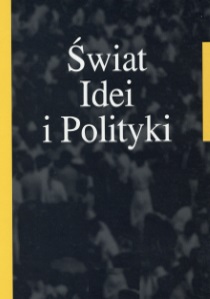Austrian Government Cycle Theory
DOI:
https://doi.org/10.34767/SIIP.2020.19.01Keywords:
business cycle, Austrian economics, inflation, depressionAbstract
When government accounted for a small proportion of the economy, the Austrian Business Cycle Theory (ABCT) was apropos because private enterprises comprised the lion’s share of commercial interactions. But, of late, in more and more countries, the share of the economy accounted for by the state has increased, and that by business firms, less and less. Thus, it is time, it is past time, to introduce a new concept, Austrian Government Cycle Theory (AGCT). The present paper is an attempt to move us in that direction.
References
Bagus, P. (2003). The Commons and the Tragedy of Banking. Mises Daily, November 12. Available at http://mises.org/story/1373 (last visited June 13, 2019).
Bagus, P. and Howden, D. (2010). Fractional Reserve Free Banking: Some Quibbles. The Quarterly Journal of Austrian Economics, 13(4), 29–55.
Bagus, P. and Howden, D. (2011). Unanswered Quibbles with Fractional Reserve Free Banking. Libertarian Papers, 3(18), 1–24.
Bagus, P., Howden, D., Block, W.E. (2013). Deposits, Loans and Banking: Clarifying the Debate. American Journal of Economics and Sociology, 72(3), 627–644, July. Available at https://onlinelibrary.wiley.com/doi/abs/10.1111/ajes.12023 (last visited June 13, 2019).
Barnett, W. II and Block, W.E. (2005). In defense of fiduciary media— a comment; or, what’s wrong with “clown” or play money?. Quarterly Journal of Austrian Economics, 8(2), 55–69. Available at http://mises.org/journals/qjae/pdf/qjae8_2_4. pdf (last visited June 13, 2019).
Barnett, W. and Block, W.E. (2008). Time deposits, dimensions and fraud. Journal of Business Ethics. Available at https://link.springer.com/article/10.1007/s10551-008-9976-9 (last visited June 13, 2019).
Barnett, W. II and Block W.E. (2009A). Crash and Carry: Financial Intermediaries, the Intertemporal-Carry Trade, and Austrian Business Cycles. Ethics & Politics, XI, 1. pp. 455-469.
Barnett, W. II, and Block, W.E. (2009B). Investment and Consumption: A critique of Rothbard’s claim that there can be no such thing as governmental ‘investment’”. Journal of Public Finance and Public Choice. 27(2–3), 183–188, http://www.walterblock.com/wp-content/uploads/InvestmentConsumption.pdf
Baxendale, T. (2010). Free Banking, the Balance Sheet and Contract Law Approach. The Cobden Centre, March 15. Available at http://www.cobdencentre.org/2010/03/free-banking-the-balance-sheet-and-contract-law-approach/ (last visited June 13, 2019).
Block, W.E. (2000A). Watch Your Language. Mises Daily, February 21. Available at https://mises.org/library/watch-your-language (last visited July 16, 2019).
Block, W.E. (2000B). Word Watch. Mises Daily, April 20. Available at http://www.mises.org/fullstory.asp?control=414&FS=Word+Watch (last visited April 6, 2020).
Block, W.E. (2002). All Government is Excessive: A Rejoinder to ‘In Defense of Excessive Government’ by Dwight Lee”. Journal of Libertarian Studies, 16(3), 35–82. Available at https://mises.org/library/all-government-excessive-rejoinder-dwightlees-defense-excessive-government (last visited July 16, 2019).
Block, W.E. (2019). Stop Trying to Make Coal Great Again. When it comes to coal, President Trump seems to care more about politics than free-market principles. The New York Times, June 4. Available at https://www.nytimes.com/2019/06/04/opinion/trump-coal.html (last visited July 16, 2019).
Block, W.E. and Barnett W. II. (2008). Continuums. Journal Etica e Politica / Ethics & Politics, 1, 151–166, June. Available at http://www2.units.it/~etica/2008_1/BLOCKBARNETT.pdf (last visited July 16, 2019).
Block, W. and Caplan, B. (2008). Walter E. Block versus Bryan Caplan on Fractional Reserve Banking. Lew Rockwell, Nov 1. Available at http://www.lewrockwell.com/block/block110.html (last visited June 13, 2019).
Block, W. versus Posner, E. (2008). Posner vs. Block on fractional reserve banking. Lew Rockwell, November, 29. Available at http://www.lewrockwell.com/block/block114.html (last visited June 13, 2019).
Block, W. and Garschina, K.M. (1996). Hayek, Business Cycles and Fractional Reserve Banking: Continuing the De-Homogenization Process. Review of Austrian Economics, 9(1), 77–94. Available at http://www.mises.org/journals/rae/pdf/rae9_1_3.pdf (last visited June 13, 2019).
Cwik, P.F. (2004). An Investigation of Inverted Yield Curves and Economic Downturns. PhD Dissertation. May 14. Auburn University.
Cwik, P.F. (2008). Austrian Business Cycle Theory: A Corporate Finance Point of View. The Quarterly Journal of Austrian Economics, 11, 60-68.
Davidson, L. (2008). Fractional Reserve Banking Is Indeed Fraudulent. Lew Rockwell, November 17. Available at http://www.lewrockwell.com/orig9/davidson-l1.html (last visited June 13, 2019).
Davidson, L. and Block, W.E. (2011). The Case Against Fiduciary Media: Ethics Is The Key. The Journal of Business Ethics, 98(3), 505–511. Available at http://www.springerlink.com/content/j76323752648720g/ (last visited June 13,2019).
DiLorenzo, T.J. and Block, W.E. (2017). An Austro-Libertarian Critique of Public Choice. Addleton Academic Publishers.
French, D.E. (2009). Early Speculative Bubbles and Increases in the Supply of Money. Second Edition. The Ludwig Von Mises Institute: Auburn.
Garrison, R. (2001). Time and Money: The Macroeconomics of Capital Structure. Routledge.
Gjerstad, S.D. and Vernon, L.S. (2014). Rethinking Housing Bubbles. Cambridge University Press.
Hanke, S. (2008). Banking Crises: Plus Ça Change… Globe Asia, November, https://www.cato.org/publications/commentary/banking-crises-plus-c-change (last visited June 13, 2019).
Hayek, F.A. (1931). Prices and Production. London: Routledge.
Hayek, F.A. (1966). Monetary Theory and The Trade Cycle. Auburn: The Ludwig Von Mises Institute.
Hazlitt, H. (1979). Gold versus Fractional Reserves Part 1. Mises Daily, in The Freeman, May. Available at https://mises.org/library/gold-versus-fractional-reserves (last visited April 6, 2020).
Hollenback, F. (2013). Insuring Deposits, Ensuring Insolvency. Mises Daily, July 24. Available at http://mises.org/daily/6487/Insuring-Deposits-Ensuring-Insolvency (last visited June 13, 2019).
Hoppe, H.-H. (1994). How is Fiat Money Possible? or, The Devolution of Money and Credit. Review of Austrian Economics, 7(2), 49–74.
Hoppe, H.-H., G. Hülsmann, W.E. Block. (1998). Against Fiduciary Media. Quarterly Journal of Austrian Economics, 1(1), 19–50. Available at http://www.mises.org/journals/qjae/pdf/qjae1_1_2.pdf (last visited June 13, 2019).
Howden, D. (2013). A Simple Math Question for Bankers. Mises Canada Daily, December 28. Available at http://mises.us2.list-manage1.com/track/click?
Huerta de Soto, J. (1995). A Critical Analysis of Central Banks and FractionalReserve Free Banking from the Austrian Perspective. Review of Austrian Economics, 8(2), 25–38.
Huerta de Soto, J. (1998). A Critical Note on Fractional-Reserve Free Banking. The Quarterly Journal of Austrian Economics, 1(4), 25–49.
Huerta de Soto, J. (2006). Money, Bank Credit and Economic Cycles. Auburn AL.: Ludwig von Mises Institute.
Huerta de Soto, J. (2010). Economic Recessions, Banking Reform, and the Future of Capitalism. Mises Daily, November 1. Available at http://mises.org/daily/4817 (last visited June 13, 2019).
Downloads
Published
Issue
Section
License
Copyright (c) 2023 Świat Idei i Polityki

This work is licensed under a Creative Commons Attribution 4.0 International License.

